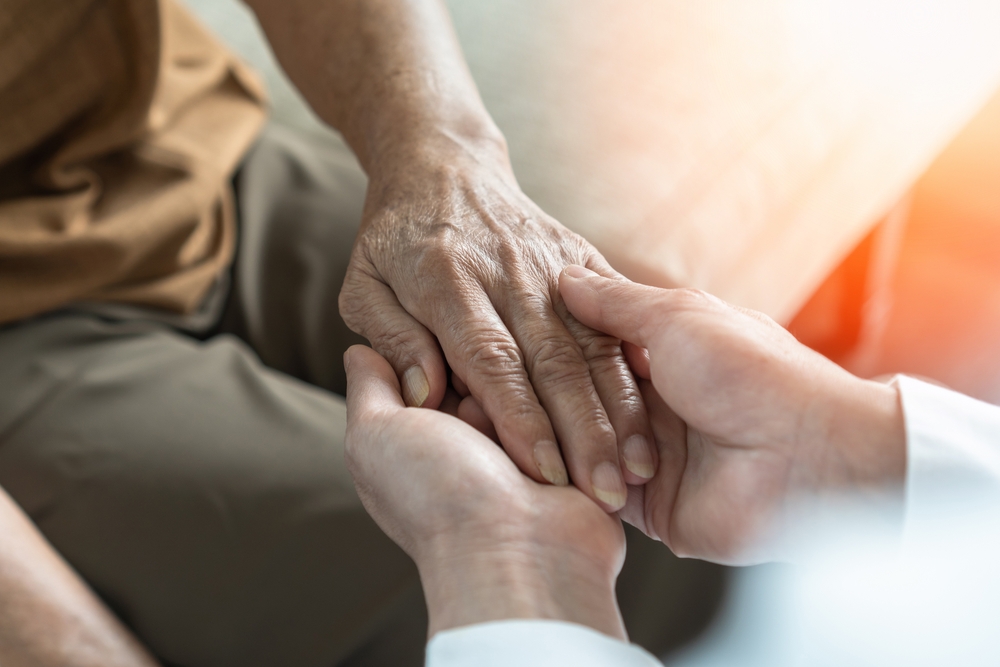Hobbies for Elderly with Arthritis
Category:

Seniors who struggle with arthritis may feel like hobbies are out of reach for them, especially if they suffer from arthritis in their hands.
While there are some hobbies that may become too difficult, like playing the piano, there are many enjoyable hobbies for elderly people with arthritis. You just need to find the one that fits you and your loved one.
Hobbies for Elderly with Arthritis
You may be surprised by the amount of hobbies that are safe and enjoyable for seniors with arthritis – many you may not have thought of before. Here are a few of our favorites:
Yoga. The practice of yoga is valuable to many people at any age and it has different benefits for everyone. For seniors, yoga can be a low-impact form of exercise that helps them maintain their flexibility and mobility – both things that help manage arthritis. It can also be a social event if your loved one takes a yoga class. If jumping right into yoga feels overwhelming, you can start with chair yoga. Many instructors are also excellent at modifying their classes to meet everyone’s needs.
Swimming. Swimming is a great choice for seniors with arthritis because it keeps them active without putting any stress on the joints. Swimming works all of your muscles. Many community centers and pools offer swimming exercise classes specifically for seniors.
Gardening. Many people find the process of planting, watering, and tending plants to be almost meditative in addition to a fun hobby. You can find modified gardening tools that have large handles and are easier on the joints. If bending over is a challenge, use raised garden beds. Your local nursery can likely suggest some low maintenance plants that will still show off a beautiful bloom to give your loved one a feeling of accomplishment.
Arts and crafts. There are many great crafts for seniors with arthritis. You can find things like modified paintbrushes, pencils, and even knitting needles that are easier for your loved ones to manipulate. While it might seem counterintuitive, crafts that require dexterity are actually helpful for those suffering from arthritis as it keeps those joints moving which can help reduce pain.
Cooking. Cooking is another hobby that is gratifying and can be modified to accommodate arthritic hands. Cooking is also something you can do with your loved one and perhaps even learn from them. Cooking a meal for family and friends is a fulfilling activity that also leads to socializing.
Reading. A person could spend hours on the couch with a good book, and your elderly loved one is no different. Reading could potentially distract from pain and is a good option if no one else is around or if your loved one just feels like being alone. If there are eyesight issues that cause reading to be a struggle, almost everything exists in an audiobook format now. Your loved one could even listen to their audiobook while enjoying another hobby, like putting a puzzle together.
Puzzles and other memory games. Memory games are great for mental health and keeping cognition sharp. Studies have shown that seniors who use memory games or word puzzles to “exercise” the brain see less cognitive decline than those who don’t.
Download Our FREE Path to Care Guide
Hobbies are a great way for seniors to stay mentally and physically active, staving off the depression that sometimes comes with age. They can provide a sense of fulfillment and also offer opportunities for socialization. Share this list with your loved one who needs something extra to do during the day and see if you can find a hobby that suits them.
To learn more about our home care services, contact our caregiving team today at 1-800-GRISWOLD or find a Caregiver near you.
Subscribe
Date: 2024-09-24
Category:


